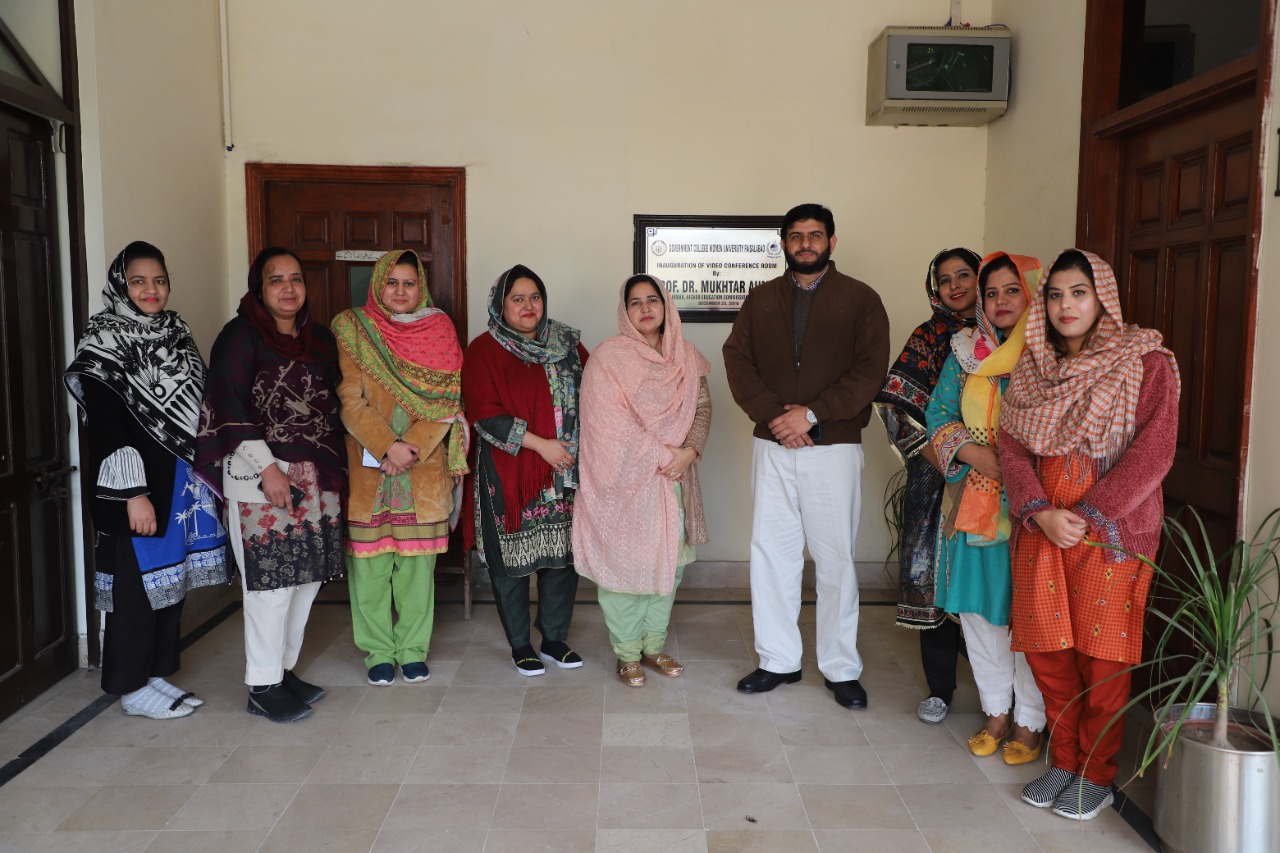The Quality Enhancement Cell of GCWUF has recently organized a webinar on the title "Implementation of Sustainable Development Goals in Universities" to enhance the skills of all faculty members regarding the UN 2030 Agenda of Sustainable Development Goals in the World. Dr. Aasma Khalid, Director Quality Enhancement Cell GCWUF introduced the guest speaker, Dr. Mohammad Haroon Khan, Additional Director ORIC, City University of Science and Information Technology Peshawar to all the participants. He has been a consultant at World Health Organization (WHO) Headquarters, Geneva, Switzerland, and has also been in close collaboration with other teams at WHO headquarters including teams from WHO emergency programme related to Joint External Evaluation, State Party Annual Reporting and SimEx for interlinking health system and health security data from different sources including World Bank. Dr. Khan, briefly described the history of Sustainable Development Goals. He elaborated that SDGs are universal and have been created to leave no one behind. The goals apply to both rich and poor countries, cities and villages, young and old, male and female. The SDGs are also interconnected with each other. For example, poverty (Goal 1) can lead to hunger and malnutrition (Goal 2), which may lead to health problems (Goal 3) that may prevent children from completing their education (Goal 4) or adults from getting a job (Goal 8).
Further, he explained that the 17 SDGs are accompanied by 169 specific targets and 232 measurable indicators. These targets and indicators will help countries plan their policies, measure their progress, find gaps and report the results to the international community.
Ministry of Planning, Development & Special Initiatives (MoP&SI), Government of Pakistan, P&D Departments of provincial governments with the support of UNDP Pakistan has launched a five years joint project of "National Initiative for Sustainable Development Goals to institutionalize 2030 Agenda. At the national level Federal SDGs Support Unit was established at the ministry with a mandate to ensure early institutionalisation of SDGs.
The pace at which the provinces have so far moved to align their policies, development planning and budget allocations with the SDGs has been painfully slow and patchy. But the good news is that the provinces where the global goals are to be actually executed are said to have made significant progress on developing provincial SDG frameworks, establishing baseline targets, resetting priorities and mobilizing academia, and other departments. The provinces are the main stakeholders in the execution of the goals as the last National Finance Commission (NFC) award transferred a major share from the national financial resources to them. The 18th Amendment to the Constitution devolved most functions related to the SDGs down to the federating units. At least 72% of the SDG-related functions now fall in the purview of the provinces and 24% in the joint purview of the federation and the provinces.
The Webinar ended with the question/answer session in which the participants from the various cultures and societies raised very interesting and beneficial questions regarding the Sustainable Development Goals. In the end, Director QEC, Dr. Aasma thanked the Guest Speaker and all participants for joining this remarkable activity.













.jpeg)
